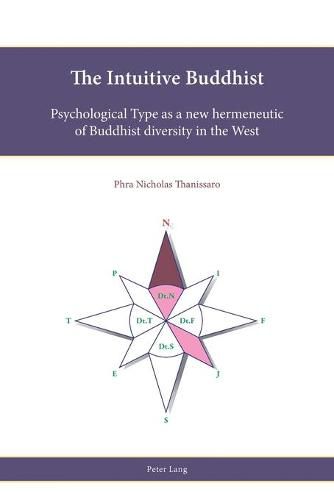Readings Newsletter
Become a Readings Member to make your shopping experience even easier.
Sign in or sign up for free!
You’re not far away from qualifying for FREE standard shipping within Australia
You’ve qualified for FREE standard shipping within Australia
The cart is loading…






This title is printed to order. This book may have been self-published. If so, we cannot guarantee the quality of the content. In the main most books will have gone through the editing process however some may not. We therefore suggest that you be aware of this before ordering this book. If in doubt check either the author or publisher’s details as we are unable to accept any returns unless they are faulty. Please contact us if you have any questions.
By examining teenage heritage and convert Buddhist communities in the West through the lens of Psychological Type, this book presents hard evidence from hundreds of self-identifying Buddhists in the UK, that the diversity of Buddhists, previously described in terms of ethnic dichotomy, is better explained in terms of Psychological Type preferences. By moving past biologically determined features such as ethnicity, the book represents a long overdue yardstick for the full spectrum of diversity within the Buddhist community - since Psychological Type preferences, such as the sliding scale of Intuition, give more predictive nuance and avoid orientalist prejudice. The book puts Buddhism on the map of Psychology of Religion by showing the statistical links between personality and more than twenty individual differences, including tendency to meditate or visit the temple. The hermeneutic of intra-Buddhist diversity described in this book, apart from providing a mirror of self-understanding for individual Buddhist practitioners, can be applied by anthropologists of Buddhism, Religious Education stakeholders and chaplains to ensure equality and objectivity in their work. Meanwhile, the book’s relatable ‘Type Compass’ style of graphic presentation represents a common ‘language’ for religious study that invites comparison between Buddhism and other faith traditions.
$9.00 standard shipping within Australia
FREE standard shipping within Australia for orders over $100.00
Express & International shipping calculated at checkout
This title is printed to order. This book may have been self-published. If so, we cannot guarantee the quality of the content. In the main most books will have gone through the editing process however some may not. We therefore suggest that you be aware of this before ordering this book. If in doubt check either the author or publisher’s details as we are unable to accept any returns unless they are faulty. Please contact us if you have any questions.
By examining teenage heritage and convert Buddhist communities in the West through the lens of Psychological Type, this book presents hard evidence from hundreds of self-identifying Buddhists in the UK, that the diversity of Buddhists, previously described in terms of ethnic dichotomy, is better explained in terms of Psychological Type preferences. By moving past biologically determined features such as ethnicity, the book represents a long overdue yardstick for the full spectrum of diversity within the Buddhist community - since Psychological Type preferences, such as the sliding scale of Intuition, give more predictive nuance and avoid orientalist prejudice. The book puts Buddhism on the map of Psychology of Religion by showing the statistical links between personality and more than twenty individual differences, including tendency to meditate or visit the temple. The hermeneutic of intra-Buddhist diversity described in this book, apart from providing a mirror of self-understanding for individual Buddhist practitioners, can be applied by anthropologists of Buddhism, Religious Education stakeholders and chaplains to ensure equality and objectivity in their work. Meanwhile, the book’s relatable ‘Type Compass’ style of graphic presentation represents a common ‘language’ for religious study that invites comparison between Buddhism and other faith traditions.